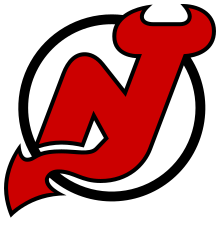Alex Ovechkin is THE Greatest Goal Scorer in NHL History
May 31, 2018 15:52:01 GMT -5
Where Did Max Go?, Dallas Stars, and 5 more like this
Post by Andre Deblois on May 31, 2018 15:52:01 GMT -5
***Scott Warning - The following post contains statistical analysis, read on at your own risk***
Debates over who is the greatest anything in NHL history are always fun to have, but they inevitably end inconclusively due to the difficulty in comparing players from different eras. Is it fair to compare a goaltender from the dreaded dead-puck era to one from the post expansion late 60s-early 70s? Can we accurately judge today’s goal scorers against those of the high-flying 80s? Based strictly on counting numbers, those comparisons are not fair, as the game has changed, and continues to change, in significant ways from decade to decade.
That being said, I set out to find out through statistical analysis, while trying to adjust for era, where Alex Ovechkin should rank among the greatest goal scorers in NHL history. While I expected to see Ovechkin rank near the top, I was shocked to find that, under my model, he is arguably THE greatest goal scorer in history. But more on that in a minute…
Before I get into how I tried to account for era and comparing players, let’s see where Ovechkin ranks in straight counting numbers, to see to what extend the era affects our perception of goal scorers.
In terms of straight goals scored, Ovechkin ranks 19th all-time with 607 career goals. This is remarkable on its own, as he is still only 32 years old and with only 1003 career games played, he is over 200GP behind everyone ahead of him on the list other than Mario Lemieux and Bobby Hull. If he keeps up anything close to his recent production (even factoring in regression due to age), within 3 years he should be in the top 6 (He would need 111 goals in three seasons to overtake Phil Esposito for 6th place).
In terms of all-time goals per game, Ovechkin ranks 4th among players with at least 400 games played. While Ovechkin has space to climb the all-time goals list, given standard age regression, his production will dip and his standing on this list will likely drop as he continues his career. The only 3 players ahead of him, Mario Lemieux, Mike Bossy and Pavel Bure all retired early due to injuries before this age-based regression could really take its toll.
While those numbers as-is are fairly impressive, they certainly don’t support the argument that Alex Ovechkin is the greatest goal scorer in NHL history… so here is how I set out to prove that statement:
I decided to compare Alex Ovechkin to the highest scoring player of the 1990s (Brett Hull), the 1980s (Wayne Gretzky) and the 1970s (Phil Esposito). In order to ensure that the age-based regression of those players did not affect the analysis, I only took their statistics for seasons before they turned 33 (Ovechkin’s age at the beginning of next year). In order to try to adjust for era, what I chose to do is compare each player’s goals-per-game (Goals/GP) stat to that season’s NHL goals-per-game total, the amount of goals scored in each game on average (NHL Goals/GP). By dividing the player’s Goals/GP with that season’s NHL Goals/GP, we are left with what I called a Goals %. This stat gives us a percentage that ties the individual player’s goal scoring rate to the league’s offensive output in any given season, allowing us to more accurately compare production across a wide variety of seasons. I have also included each season’s average Sv% to demonstrate the strength of the defense and goaltending.

For example, you can see in this graph that Gretzky’s 0.63 Goals/GP in 87-88 are more or less equal to
What this graph shows us is that, despite Ovechkin finishing last in Average Goals and Goals/GP, the NHL’s total offensive output during his career is so much lower then everyone else’s that his Goals % is actually the highest of the four players. While it is impossible to say with any degree of certainty, if you were to apply Ovechkin’s Goals% to the NHL Offensive output during the 1979-1993 period in Gretzky’s seasons, he would have scored at an average rate 0.80 Goals/GP, outscoring Gretzky by 85 goals over those 14 seasons. Again, we can’t say that for sure, but that is what the numbers suggest under this model.
Not only that, but he is far and away the most consistent; his Goals% never dips below 7.22% (all other players have at least two seasons below that level). He also managed this against what is easily the stingiest defense among all four eras.
Also of interest, though not related to this argument, it’s hard to say whether Esposito’s post 1967-68 production explosion was strictly due to his own talent or due to the fact that half the NHL’s teams were of expansion quality after the death of the original 6, given how much the average Sv% plummeted right when he started scoring more. Also, while Gretzky’s 92 goals in 81-82 set the NHL mark for goals in a season, his 87 goal season two years later produced a 1.24 Goals/GP clip, which is insane, even by the standard of the high flying 80s (15.73 Goals%).
Is this enough to definitively put the “who is the best goal scorer in NHL history” debate to bed… probably not, and sure, you can twist data to say just about anything, but I still found this analysis to be of interest and I wanted to share it with you all.
So what say you, is Alex Ovechkin the greatest goal scorer in NHL history? If not, who is?
Debates over who is the greatest anything in NHL history are always fun to have, but they inevitably end inconclusively due to the difficulty in comparing players from different eras. Is it fair to compare a goaltender from the dreaded dead-puck era to one from the post expansion late 60s-early 70s? Can we accurately judge today’s goal scorers against those of the high-flying 80s? Based strictly on counting numbers, those comparisons are not fair, as the game has changed, and continues to change, in significant ways from decade to decade.
That being said, I set out to find out through statistical analysis, while trying to adjust for era, where Alex Ovechkin should rank among the greatest goal scorers in NHL history. While I expected to see Ovechkin rank near the top, I was shocked to find that, under my model, he is arguably THE greatest goal scorer in history. But more on that in a minute…
Before I get into how I tried to account for era and comparing players, let’s see where Ovechkin ranks in straight counting numbers, to see to what extend the era affects our perception of goal scorers.
In terms of straight goals scored, Ovechkin ranks 19th all-time with 607 career goals. This is remarkable on its own, as he is still only 32 years old and with only 1003 career games played, he is over 200GP behind everyone ahead of him on the list other than Mario Lemieux and Bobby Hull. If he keeps up anything close to his recent production (even factoring in regression due to age), within 3 years he should be in the top 6 (He would need 111 goals in three seasons to overtake Phil Esposito for 6th place).
In terms of all-time goals per game, Ovechkin ranks 4th among players with at least 400 games played. While Ovechkin has space to climb the all-time goals list, given standard age regression, his production will dip and his standing on this list will likely drop as he continues his career. The only 3 players ahead of him, Mario Lemieux, Mike Bossy and Pavel Bure all retired early due to injuries before this age-based regression could really take its toll.
While those numbers as-is are fairly impressive, they certainly don’t support the argument that Alex Ovechkin is the greatest goal scorer in NHL history… so here is how I set out to prove that statement:
I decided to compare Alex Ovechkin to the highest scoring player of the 1990s (Brett Hull), the 1980s (Wayne Gretzky) and the 1970s (Phil Esposito). In order to ensure that the age-based regression of those players did not affect the analysis, I only took their statistics for seasons before they turned 33 (Ovechkin’s age at the beginning of next year). In order to try to adjust for era, what I chose to do is compare each player’s goals-per-game (Goals/GP) stat to that season’s NHL goals-per-game total, the amount of goals scored in each game on average (NHL Goals/GP). By dividing the player’s Goals/GP with that season’s NHL Goals/GP, we are left with what I called a Goals %. This stat gives us a percentage that ties the individual player’s goal scoring rate to the league’s offensive output in any given season, allowing us to more accurately compare production across a wide variety of seasons. I have also included each season’s average Sv% to demonstrate the strength of the defense and goaltending.

For example, you can see in this graph that Gretzky’s 0.63 Goals/GP in 87-88 are more or less equal to
Esposito’s 0.47 Goals/GP in 67-68 since they each reflect between 8.42 and 8.49% of those season’s NHL Goals/GP.
What this graph shows us is that, despite Ovechkin finishing last in Average Goals and Goals/GP, the NHL’s total offensive output during his career is so much lower then everyone else’s that his Goals % is actually the highest of the four players. While it is impossible to say with any degree of certainty, if you were to apply Ovechkin’s Goals% to the NHL Offensive output during the 1979-1993 period in Gretzky’s seasons, he would have scored at an average rate 0.80 Goals/GP, outscoring Gretzky by 85 goals over those 14 seasons. Again, we can’t say that for sure, but that is what the numbers suggest under this model.
Not only that, but he is far and away the most consistent; his Goals% never dips below 7.22% (all other players have at least two seasons below that level). He also managed this against what is easily the stingiest defense among all four eras.
Also of interest, though not related to this argument, it’s hard to say whether Esposito’s post 1967-68 production explosion was strictly due to his own talent or due to the fact that half the NHL’s teams were of expansion quality after the death of the original 6, given how much the average Sv% plummeted right when he started scoring more. Also, while Gretzky’s 92 goals in 81-82 set the NHL mark for goals in a season, his 87 goal season two years later produced a 1.24 Goals/GP clip, which is insane, even by the standard of the high flying 80s (15.73 Goals%).
Is this enough to definitively put the “who is the best goal scorer in NHL history” debate to bed… probably not, and sure, you can twist data to say just about anything, but I still found this analysis to be of interest and I wanted to share it with you all.
So what say you, is Alex Ovechkin the greatest goal scorer in NHL history? If not, who is?




















